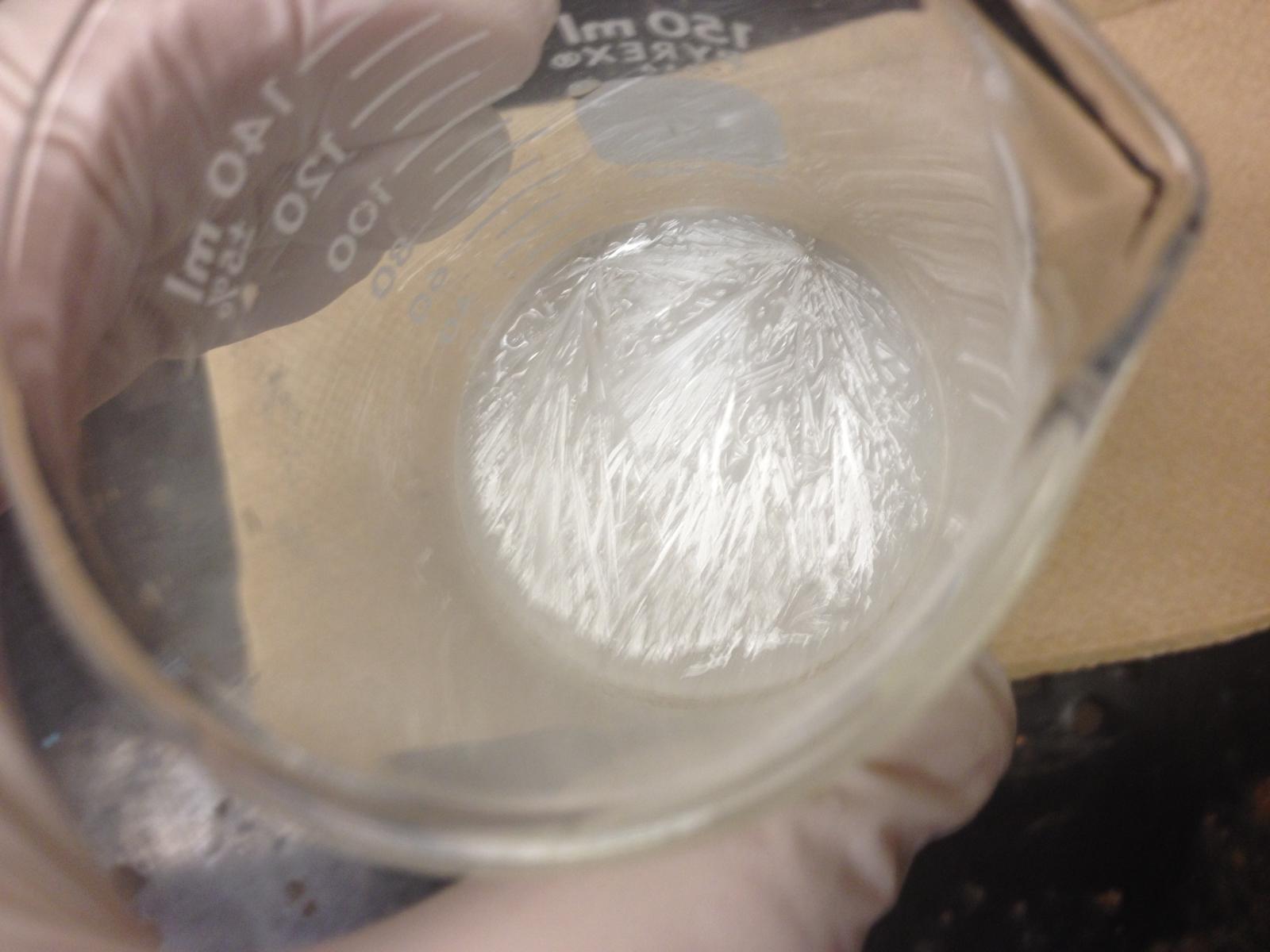DESCRIPTION
In this activity, visitors watch as a crystal self-assembles instantly! During this activity visitors learn what crystals are and how they grow. They also discover that self-assembly is an important process for many naturally occurring systems.
DESCRIPTION
In this activity, visitors watch as a crystal self-assembles instantly! During this activity visitors learn what crystals are and how they grow. They also discover that self-assembly is an important process for many naturally occurring systems.
OBJECTIVES
BIG IDEA
In this activity, visitors learn that crystals are formed from repeating units and that crystal formation is a type of self-assembly. Visitors also discover that behaviors at the atomic and the molecular scales can result in macroscale structures that are visible to the human eye.
LEARNING GOALS
What self-assembly is
What crystals are
That crystal formation is due to the self-assembly of atoms and molecules
That super-saturated solutions can form crystals
That some reactions produce heat (some reactions are exothermic)
That using super-cooled solutions can speed up crystal formation
NANO CONTENT MAP
Nanometer-sized things are very small, and often behave differently than larger things do.
Scientists and engineers have formed the interdisciplinary field of nanotechnology by investigating properties and manipulating matter at the nanoscale.
Credits
Lawrence Hall of Science
Developed for the NISE Network with funding from the National Science Foundation under Award Numbers 0532536 and 0940143. Any opinions, findings, and conclusions or recommendations expressed in this product are those of the authors and do not necessarily reflect the views of the Foundation.
Creative Commons Attribution Non-Commercial Share Alike 3.0 United States (CC BY-NC-SA 3.0 US).
View more details

NISE Network products are developed through an iterative collaborative process that includes scientific review, peer review, and visitor evaluation in accordance with an inclusive audiences approach. Products are designed to be easily edited and adapted for different audiences under a Creative Commons Attribution Non-Commercial Share Alike license. To learn more, visit our Development Process page.

